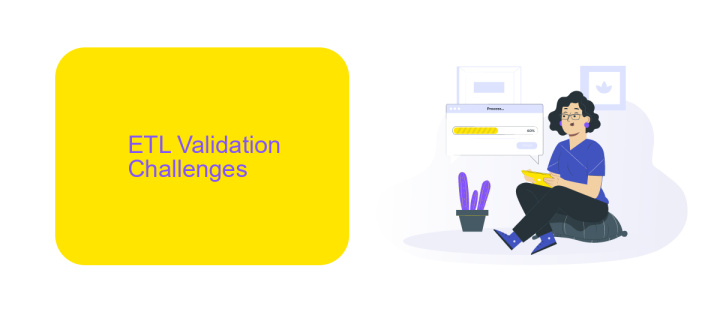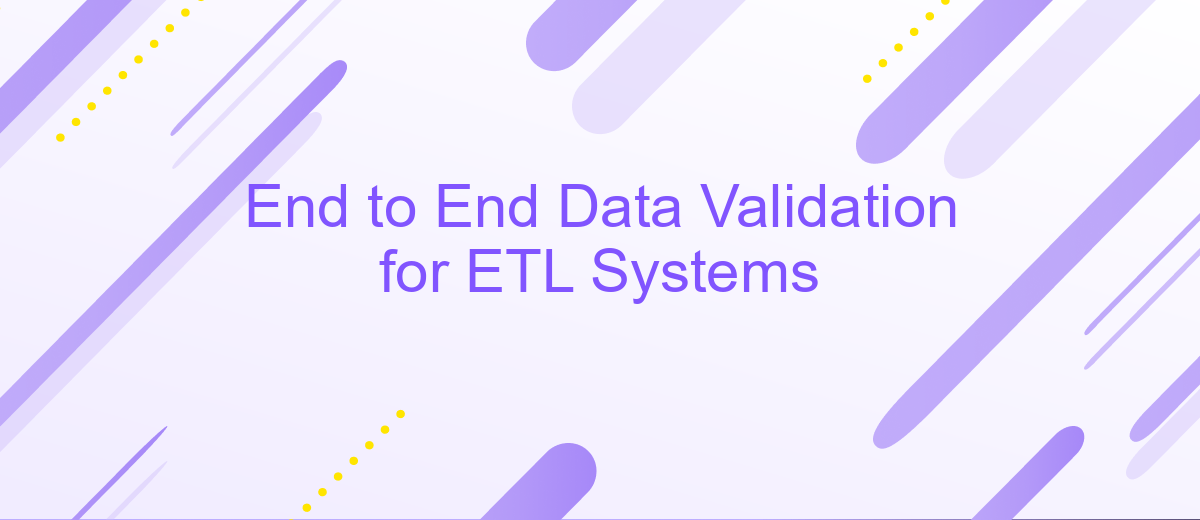End to End Data Validation for ETL Systems
End-to-end data validation is a critical component of ETL (Extract, Transform, Load) systems, ensuring data integrity and accuracy from source to destination. By implementing comprehensive validation checks at each stage of the ETL process, organizations can identify and rectify errors early, maintain data quality, and build trust in their data-driven decisions. This article explores essential strategies and best practices for effective ETL data validation.
Introduction
End-to-end data validation is a critical component of ETL (Extract, Transform, Load) systems, ensuring data integrity and accuracy throughout the entire data pipeline. As organizations increasingly rely on data-driven decision-making, the need for robust validation mechanisms becomes paramount to prevent errors and inconsistencies.
- Ensures data quality and integrity
- Detects and prevents data anomalies
- Enhances trust in data-driven insights
Integrating services like ApiX-Drive can simplify the process of setting up and managing ETL systems. ApiX-Drive offers seamless integration capabilities, allowing for automated data validation at each stage of the ETL process. By leveraging such tools, organizations can ensure that their data remains accurate and reliable, thus facilitating more informed decision-making.
ETL Validation Challenges

ETL validation presents several challenges that can significantly impact the reliability and accuracy of data pipelines. One of the primary issues is ensuring data consistency across different stages of the ETL process. Data can become corrupted or lost due to various factors, including network failures, system crashes, or software bugs. This necessitates thorough validation mechanisms to detect and correct any discrepancies between the source and target datasets. Additionally, handling large volumes of data in real-time adds complexity, as it requires robust infrastructure and efficient algorithms to maintain performance without compromising data integrity.
Another significant challenge is the integration of diverse data sources, each with its own schema, format, and quality standards. Tools like ApiX-Drive can streamline this process by providing automated integration solutions that facilitate seamless data flow between various systems. However, even with such tools, ensuring that the integrated data meets all business rules and validation criteria remains a daunting task. This often involves extensive testing and continuous monitoring to identify and resolve any issues promptly. Furthermore, maintaining data security and compliance with regulatory standards adds an additional layer of complexity to the ETL validation process.
End-to-End Data Validation

End-to-end data validation ensures the accuracy and integrity of data as it moves through ETL systems. This process is crucial for maintaining data quality and reliability, which are essential for making informed business decisions. By implementing comprehensive validation checks, organizations can detect and rectify data issues early in the ETL pipeline.
- Define validation rules: Establish rules to validate data at each stage of the ETL process, including source data, transformation logic, and destination data.
- Automate validation: Use tools and services like ApiX-Drive to automate data validation and integration, reducing manual intervention and minimizing errors.
- Monitor and report: Continuously monitor data flows and generate reports to track validation results and identify potential issues promptly.
By integrating end-to-end data validation into ETL systems, businesses can ensure data consistency and accuracy across all stages of data processing. Leveraging tools like ApiX-Drive for automation and monitoring can further enhance the efficiency and reliability of data validation efforts, leading to more trustworthy data insights.
Implementation Strategies

Implementing end-to-end data validation for ETL systems is crucial to ensure data accuracy and integrity. To achieve this, one must adopt a comprehensive approach that encompasses multiple validation stages throughout the ETL pipeline. This involves validating data at the source, during transformation, and at the destination.
First, source data validation ensures that the raw data meets predefined quality standards before it enters the ETL process. This can involve checking for missing values, data type mismatches, and ensuring data consistency. During the transformation phase, validation rules should be applied to ensure that the data transformations are accurate and adhere to business logic.
- Source data validation: Check for completeness, accuracy, and consistency.
- Transformation validation: Ensure transformations adhere to business rules.
- Destination validation: Confirm data integrity and correctness post-load.
Lastly, destination data validation verifies that the data loaded into the target system is accurate and consistent with the source data. Tools like ApiX-Drive can facilitate integration and validation processes by automating data flows and ensuring seamless connectivity between systems. This holistic approach ensures that data remains reliable and trustworthy throughout its lifecycle.
Best Practices and Use Cases
Implementing end-to-end data validation for ETL systems requires adherence to several best practices. First, ensure data quality at every stage by incorporating validation checks during extraction, transformation, and loading processes. Automated testing frameworks can be utilized to run these checks consistently. Additionally, maintain a comprehensive logging system to track data lineage and any discrepancies that arise. This not only aids in troubleshooting but also ensures compliance with data governance policies.
In practical use cases, integrating tools like ApiX-Drive can streamline the validation process. ApiX-Drive allows for seamless data integration across various platforms, facilitating real-time data synchronization and validation. For instance, it can be used to automate data extraction from multiple sources, apply transformation rules, and load the validated data into your target system. This reduces manual intervention and enhances the reliability of your ETL pipeline, ensuring that only accurate and consistent data is utilized for decision-making.
FAQ
What is end-to-end data validation in ETL systems?
Why is end-to-end data validation important in ETL processes?
What are common methods for performing data validation in ETL systems?
How can automation improve the process of data validation in ETL systems?
What tools or services can assist in automating data validation for ETL systems?
Apix-Drive will help optimize business processes, save you from a lot of routine tasks and unnecessary costs for automation, attracting additional specialists. Try setting up a free test connection with ApiX-Drive and see for yourself. Now you have to think about where to invest the freed time and money!

